Results 241 to 250 of 499
Thread Information
Users Browsing this Thread
There are currently 1 users browsing this thread. (0 members and 1 guests)
-
11-27-2022, 12:31 AM #241
The Slow Roasted Italian
 RECIPE -> Southwestern Egg Rolls (Air Fryer) - The Slow Roasted Italian
RECIPE -> Southwestern Egg Rolls (Air Fryer) - The Slow Roasted Italian
These southwestern egg rolls are stuffed with chicken, black beans, fresh veggies, and cheese. Make a batch today in under 30 minutes!

The Slow Roasted Italian
 RECIPE -> Southwestern Egg Rolls (Air Fryer) - The Slow Roasted Italian
RECIPE -> Southwestern Egg Rolls (Air Fryer) - The Slow Roasted Italian
These southwestern egg rolls are stuffed with chicken, black beans, fresh veggies, and cheese. Make a batch today in under 30 minutes!
If you're gonna fight, fight like you're the third monkey on the ramp to Noah's Ark... and brother its starting to rain. Join our efforts to Secure America's Borders and End Illegal Immigration by Joining ALIPAC's E-Mail Alerts network (CLICK HERE)
-
12-10-2022, 09:56 PM #242If you're gonna fight, fight like you're the third monkey on the ramp to Noah's Ark... and brother its starting to rain. Join our efforts to Secure America's Borders and End Illegal Immigration by Joining ALIPAC's E-Mail Alerts network (CLICK HERE)
-
12-17-2022, 05:32 PM #243
Simply changing your diet can shrink colon cancer tumors, study finds
Friday, December 16, 2022 by: Ethan Huff
Tags: alternative medicine, breakthrough, cancer solutions, cancer treatment, colon cancer, cystine, diet, discoveries, food cures, food is medicine, goodcancer, goodhealth, goodmedicine, goodscience, Leucine, mTORC1, natural cures, natural medicine, prevention, protein, research, tumors
3,550VIEWS

(Natural News) Rates of colon cancer are on the rise across the United States, particularly among young people. A recent study, however, reveals a silver lining.
Published in the journal Gastroenterology, the paper, entitled “Dysregulated Amino Acid Sensing Drives Colorectal Cancer Growth and Metabolic Reprogramming Leading to Chemoresistance,” suggests that maintaining a low-protein diet can help a person with colon cancer naturally shrink his tumors and prevent further colon cancer cell growth.
A team of 10 researchers from the University of Michigan looked at mice diagnosed with colon cancer. Mice and humans both possess molecules called mTORC1 that are sensitive to nutrients and believed to be hyperactivated when either mammal develops cancer.
“These molecules are implicated in 70 percent of human cancers, including colorectal cancers,” reports explain. “Other animal studies have shown that inhibiting mTORC1 appears to also inhibit tumor growth.”
Researchers tested a protein-restricted diet on the mice for two weeks, followed by four weeks of standard chemotherapy. Instead of feeding the mice their normal ratio of 21 percent protein per meal, they instead gave the creatures just four percent protein.
In the end, mice fed low-protein diets had less mTORC1 activation, and thus less tumor growth, compared to mice fed their normal protein died. Specifically, it was observed that restricting the intake of leucine and cystine, two amino acids, nutritionally signaled the deactivation of mTORC1, it was observed. (Related: Check out these common food additives that cause intestinal inflammation and colon cancer.)
 The researchers did not stop there, though. They also conducted the same test on human colon cancer just to be sure that the results extrapolated. These, too, showed similar benefits when protein intake was restricted.
The researchers did not stop there, though. They also conducted the same test on human colon cancer just to be sure that the results extrapolated. These, too, showed similar benefits when protein intake was restricted.
Depriving cancer cells of protein starves them to death, study says
The reason why this seems to be the case is because cancer cells, as you may already know, grow and proliferate exponentially. They do so with the help of nutrients, some of which are synthesized inside cancer cells themselves and some of which come from amino acids and other components of one’s diet.
Reducing protein intake while afflicted with cancer helps to limit tumor growth, the study suggests, by depriving cancer cells of the nutrients they need to flourish. They effectively starve to death as a result of reduced protein intake.
“Feeding or starving cancer cells is … complicated,” noted Jeffrey Nelson, the surgical director at The Center for Inflammatory Bowel and Colorectal Diseases at the Mercy Medical Center in Baltimore.
“But this research shows that depriving certain amino acids influences the mTORC1 pathways leading to cell death.”
These results align with those of “The China Study,” which similarly suggests that high-protein diets are not so good for human health. A work of Dr. T. Colin Campbell, PhD, a Cornell-trained biochemist, “The China Study” is based on numerous longitudinal nutrition studies conducted between 1983 and 1990 suggesting that a “plant-based” diet lower in protein and higher in dietary fiber and whole foods produces the best health outcomes.
“People in China who lived in places where the regular diet was one that included smaller amounts of animal protein were less likely to get diabetes, cancer, and heart disease,” one report explains about “The China Study.”
It may not be as simple as this, though. As one commenter pointed out, Eskimos who rely almost entirely on protein-based foods are not suffering from colon cancer like Westerners are. The reason, it would seem, is because they are not consuming ultra-processed junk food, which is what spurs cancer growth in the first place, among other things in the modern world.
Want to learn more about how to keep your body cancer-free? Check out PreventCancer.news.
Sources for this article include:
TheEpochTimes.com
GastroJournal.org
NaturalNews.com
Simply changing your diet can shrink colon cancer tumors, study finds – NaturalNews.comIf you're gonna fight, fight like you're the third monkey on the ramp to Noah's Ark... and brother its starting to rain. Join our efforts to Secure America's Borders and End Illegal Immigration by Joining ALIPAC's E-Mail Alerts network (CLICK HERE)
-
12-17-2022, 09:25 PM #244
Does an orange contain enough vitamin C to support optimal health?
Friday, December 16, 2022 by: Zoey Sky
Tags: antioxidants, ascorbic acid, clean food, food is medicine, food science, Fresh, fruits, functional food, goodfood, goodhealth, immune system, natural health, nutrients, Oranges, organics, superfoods, supplements, vitamin C
2,000VIEWS

(Natural News) Vitamin C or L-ascorbic acid is a water-soluble vitamin that’s an important part of a balanced diet. This essential vitamin has many bodily functions.
For starters, vitamin C helps with collagen production and boosts your immune system.
Many people think oranges are the best dietary source of vitamin C, but some fruits and vegetables are actually better sources of this essential mineral.
Is orange the best source of vitamin C?
Here is how much vitamin C is in orange.
According to nutrient analysis data from the U.S. Department of Agriculture (USDA), one medium orange contains approximately 68 milligrams of vitamin C. (Related: Avoid sun damage with superfoods that offer photoprotective benefits for your skin.)
Surprisingly, a 3/4-cup serving of orange juice contains a little more vitamin C than an actual orange. Orange juice has a concentrated dose of around 93 mg of vitamin C.
However, if you’re after more fiber, a whole orange delivers more dietary fiber, especially if you can stomach the white, spongy pith.
Other fruits and vegetables that contain more vitamin C
Here’s a breakdown of other superfoods that either top the orange’s vitamin C capacity or come close, according to data from the USDA:
- Kakadu plums (100 grams) – 2,907 mg
- Acerola cherries (49 grams or 1/2 cup) – 825 mg
- Rose hips (100 grams) – 426 mg
- Chili peppers (1 pepper) – 109 mg
- Red pepper (1/2 cup) – 95 mg
- Grapefruit juice (3/4 cup) – 70 mg
- Kiwi fruit (medium) – 64 mg
- Green pepper (1/2 cup) – 60 mg
- Broccoli (1/2 cup) – 51 mg
- Strawberries (1/2 cup) – 49 mg
- Brussels sprouts (1/2 cup) – 48 mg

You can also boost your vitamin C intake by preparing this eye-catching and nutritious salad with green beans and pomegranate.
Green beans with pomegranate
Ingredients for eight servings:
- 500 g green beans, trimmed
- 1/3 cup (80ml) pomegranate seeds
- 2 Tablespoon extra virgin olive oil
- 1 Tablespoon lemon juice
- 1 Tablespoon pomegranate molasses (Store-bought or homemade.)
- 2 Teaspoons maple syrup
- 2 Teaspoons caster sugar
Preparation:
- Cook the green beans in a saucepan of boiling, salted water for three minutes.
- Drain the beans and refresh them in a bowl of iced water.
- Whisk the olive oil, pomegranate molasses, lemon juice, maple syrup and sugar together in another bowl.
- Place the cooked beans in a serving bowl and drizzle with the dressing.
- Sprinkle the pomegranate seeds over the beans before serving.
How much vitamin C do you need daily?
The recommended dietary allowance (RDA) for vitamin C varies based on factors like your age and gender.
- Adult men aged 19 and older need a baseline intake of 90 mg of vitamin C daily
- Adult women need at least 75 mg of vitamin C daily
- Pregnant women need at least 85 mg of vitamin C daily
- Breastfeeding mothers need at least 120 mg of vitamin C daily
Jessica Cording, a health coach and registered dietitian, said these are general recommendations. But it can vary in terms of what’s considered the optimal amount for you.
You may have higher needs during different times in your life, but at a minimum, you should aim for the RDA.
Data suggests that at least 42 percent of U.S. adults are deficient in vitamin C based on blood test results. At least 118 million American adults are also failing to consume adequate amounts of vitamin C daily from their diets.
If you’re taking in more vitamin C than you need, you will urinate the excess since your body will get rid of it, said Dr. Zhaoping Li, the director of the Center for Human Nutrition and chief of the Division of Clinical Nutrition at David Geffen School of Medicine at the University of California, Los Angeles (UCLA).
If you have a “megadose” of vitamin C, you may experience negative side effects, warned Li.
According to the National Academies, the tolerable upper intake level (UL) of vitamin C is 2,000 mg per day. The UL is defined as “the highest level of daily nutrient intake that is likely to pose no risk of adverse health effects to almost all individuals in the general population.”
Health benefits of vitamin C
Emily Achey, a registered dietitian nutritionist, said that vitamin C has a role in many important functions in the body. These include the following:
- Proper immune system function
- Tissue healing
- Collagen formation
- Maintenance of bones and cartilage
- Optimal absorption of iron
Vitamin C is your body’s primary water-soluble antioxidant and it has a major role in neutralizing harmful free radicals and fighting reactive oxidative species (ROS) throughout the body. The vitamin can also help regenerate other antioxidants in your body, like vitamin E and glutathione.
These nutrients work with vitamin C to protect different cells and tissues throughout the body.
According to studies, getting sufficient levels of vitamin C helps support memory and cognitive function.
Do you need to take vitamin C supplements?
Not everyone needs to supplement with vitamin C, especially if you get enough of it with a balanced diet.
If you’re not sure, examine your diet to see if supplementation can offer benefits. What specific needs are you covering with food?
Are there gaps in your diet? If you’re falling short of the ideal vitamin C intake from food, health experts recommend taking a vitamin C supplement.
If you are having issues with immune system function, you should also consider taking additional vitamin C.
Aside from the gap-filling approach, the science of vitamin C also offers potential benefits for higher potency dosing, such as increasing your dose from 500 mg to 1,000 mg, depending on your health goals.
If you want to optimize your immune response or for the reduction of C-reactive protein, an inflammatory biomarker, and promote cardiometabolic health (e.g., blood pressure), data suggests that high-potency C dosing may be beneficial.
Fresh oranges and orange juice are good sources of vitamin C, but there are other food sources of the essential vitamin. You can also supplement with vitamin C to boost your intake and support immune health.
Follow Nutrients.news for more articles about the health benefits of getting enough vitamin C and other nutrients.
Watch the video below for a closer look at the many health benefits of vitamin C.
This video is from the Holistic Herbalist channel on Brighteon.com.
More related stories:
STUDY: Vitamin C and zinc supplementation can increase the effectiveness of antimalarial agents.
Vitamin C: An essential nutrient for good overall health.
7 Foods that are high in vitamin C: Nutrition and benefits.
Sources include:
Mindbodygreen.com
Healthline.com
Brighteon.com
Delicious.com.au
Does an orange contain enough vitamin C to support optimal health? – NaturalNews.com
If you're gonna fight, fight like you're the third monkey on the ramp to Noah's Ark... and brother its starting to rain. Join our efforts to Secure America's Borders and End Illegal Immigration by Joining ALIPAC's E-Mail Alerts network (CLICK HERE)
-
12-22-2022, 08:56 AM #245
Study: Goji berries boost eye health, help prevent vision problems, study concludes
Wednesday, December 21, 2022 by: Mary Villareal
Tags: age-related macular degeneration, alternative medicine, AMD, eye health, food cures, food is medicine, ganglion cells, goji berries, goodfood, goodhealth, goodmedicine, lutein, Lycium barbarum, superfood, superfoods, vision problems, zeaxanthin
840VIEWS
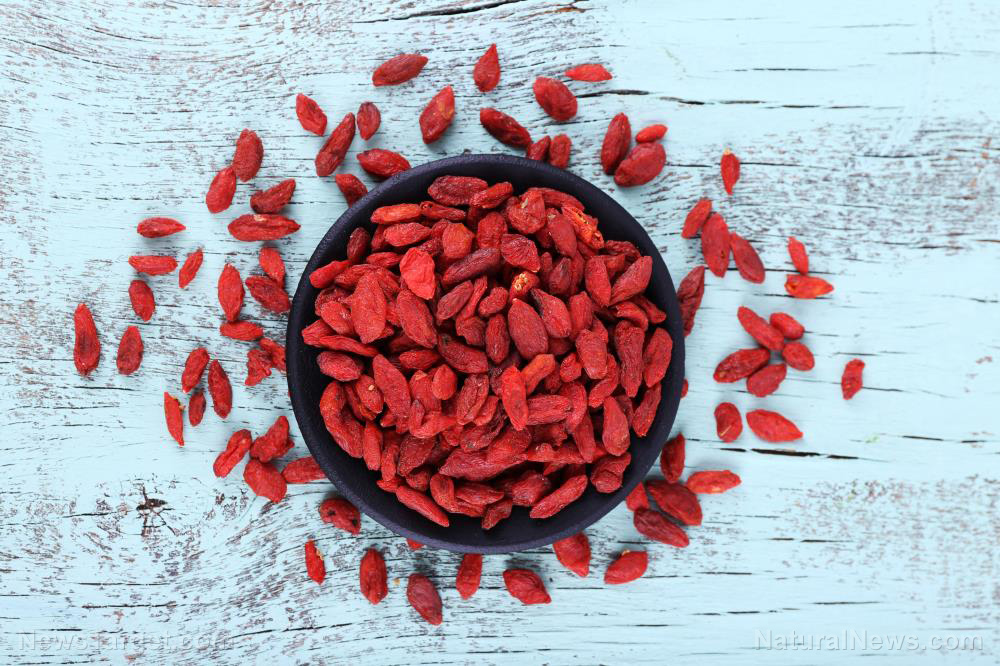
(Natural News) A study has found that a small serving of dried goji berries (Lycium barbarum) a day may prevent or delay age-related macular degeneration (AMD).
AMD is the leading cause of vision loss in older individuals and is estimated to affect over 170 million globally. It usually affects people in their 50s and 60s, targeting their central field of vision.
In the small-scale research published December 2021 in Nutrients, the study authors from the University of California, Davis (UC Davis) found that 13 healthy participants aged 45 to 65 who consumed 29 grams or a handful of goji berries five times a week for 90 days increased the density of protective pigments in their eyes. In contrast, 14 study participants who consumed commercial supplements for eye health over the same period did not show an increase in protective pigments. (Related: Discover the healing power of goji berries.)
Lead study author Xiang Li explained that the cohort who consumed goji berries had increased levels of lutein and zeaxanthin. These two pigments filter out harmful blue light, provide antioxidant protection and help protect the eyes from the effects of aging. She dubbed these two pigments as “sunscreen for the eyes.”
The nutritional benefits of goji berries come in handy when addressing AMD. Co-author Glenn Yiu explained that while AMD does not cause total blindness, it can affect one’s ability to read or recognize faces.
A separate study also showed that goji berries can protect the retina from ganglion cells that are responsible for glaucoma, which can lead to vision loss.
 Other benefits of goji berries
Other benefits of goji berries
Goji berries are native to China and have been eaten for generations in hopes of extending a person’s lifespan. The fruit, also called wolfberry in some areas, offers high amounts of protein, vitamin A, vitamin C, riboflavin, potassium, iron, magnesium, copper and zinc. While it provides high levels of various antioxidants, it is especially rich in beta-carotene and zeaxanthin.
Researchers also looked at goji berries for their range of proposed health benefits, including immune function, metabolic syndrome and neurological disorders.
Tested in rabbits under laboratory conditions, goji berries lowered blood glucose, total cholesterol and triglyceride levels. In diabetic rats, it improved insulin resistance.
Some studies also found that goji berry juice has mental health benefits, enhances athletic performance, stimulates a better quality of sleep and induces overall feelings of good health.
Medical professionals, however, caution individuals that take blood thinners to talk to their primary care physicians before consuming products that contain goji, as it may cause an adverse reaction. Goji berries may also interact with diabetes and blood pressure drugs. When eaten in moderation, however, they appear to be safe.
Goji berries can be consumed in different ways. They can be eaten raw, dried, cooked or added to drinks such as herbal teas and juices. They can also be incorporated into a healthy lifestyle and weight loss diet plans, although there is little evidence that they can promote weight loss by themselves.
Goji berries are also said to protect against cancer due to their high levels of antioxidants, including carotenoids, which are responsible for fighting cancer cells. Antioxidants slow tumor growth, reduce inflammation and help remove harmful substances in the body.
Research on mice also found that goji berries may inhibit tumor growth and boost the effectiveness of cancer treatments.
Visit EyeHealth.news for more on how to support healthy vision.
Watch this video that discusses nine health benefits of goji berries.
This video is from the Health Ranger Store channel on Brighteon.com.
More related stories:
Study suggests compounds in goji berries can boost eye health.
Goji Berries: how much do you really know about this superfruit?
Goji berry extract found to be an effective treatment for two deadly tropical diseases.
Sources include:
ScienceDaily.com
MDPI.com
MedicalNewsToday.com
SutterHealth.com
Brighteon.com
Study: Goji berries boost eye health, help prevent vision problems, study concludes – NaturalNews.comIf you're gonna fight, fight like you're the third monkey on the ramp to Noah's Ark... and brother its starting to rain. Join our efforts to Secure America's Borders and End Illegal Immigration by Joining ALIPAC's E-Mail Alerts network (CLICK HERE)
-
12-22-2022, 07:16 PM #246
Fruit Extract Kills Cancer
FRUIT EXTRACT KILLS CANCER

 bluewater
bluewater
bluewater
37678 subscribersIf you're gonna fight, fight like you're the third monkey on the ramp to Noah's Ark... and brother its starting to rain. Join our efforts to Secure America's Borders and End Illegal Immigration by Joining ALIPAC's E-Mail Alerts network (CLICK HERE)
-
12-25-2022, 12:07 AM #247
4 Reasons to take Vitamin B3 every day
Saturday, December 24, 2022 by: Olivia Cook
Tags: #nutrition, anticancer, brain health, cardiovascular health, goodfood, goodhealth, niacin, nicotinamide, nicotinamide riboside, nutrients, pellagra, prevention, skin cancer, skin care, supplements, vitamin B3, vitamin B3 deficiency, vitamins
2,980VIEWS
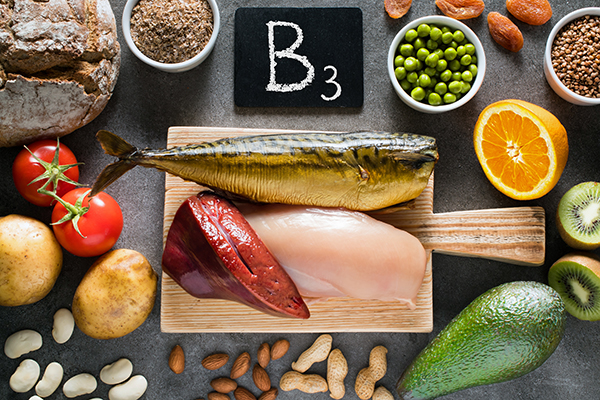
(Natural News) Vitamin B3 is one of eight B vitamins that help the body convert carbohydrates from many kinds of foods into fuel.
There are three main forms of vitamin B3 – nicotinamide riboside, niacin and nicotinamide. Each form of vitamin B3 affects the body in different ways.
Here are some of the science-backed health benefits of vitamin B3, with particular focus on niacin and nicotinamide.
Vitamin B3 prevents skin cancer
In a study published in the New England Journal of Medicine (NEJM), Australian researchers expounded on the protective effects of vitamin B3 against skin damage caused by ultraviolet (UV) radiation. UV radiation is the most common cause of skin cancer. The results of the double-blind, randomized clinical trial showed that nicotinamide can reduce the risk of basal cell carcinoma development by 23 percent. The study also found that nicotinamide can reduce the risk of squamous cell carcinoma development by 30 percent. (Related: Niacin – vitamin B3 can prevent melanoma, scientists confirm.)
Vitamin B3 promotes cardiovascular health
A study published July 2015 in Medical Science Monitor showed the ability of niacin to reduce the level of lipids and lipoproteins in the blood. Niacin subsequently caused a decreased triglyceride levels – lowering the risk of heart disease. The same study also revealed that niacin helps increase the production of adiponectin, a hormone that minimizes the formation of fatty deposits in the arteries.
Vitamin B3 supports skin health
Using topical and oral nicotinamide helped boost cellular energy and regulated the production of a key enzyme that aids in skin DNA repair and the suppression of inflammatory cytokines, according to a study published in the Australasian Journal of Dermatology. “Nicotinamide shows promise for the treatment of a wide range of dermatological conditions, including autoimmune blistering disorders, acne, rosacea, ageing skin and atopic dermatitis,” the study authors wrote. “In particular, recent studies have also shown it to be a potential agent for reducing actinic keratoses and preventing skin cancers.”
 Vitamin B3 supports brain health
Vitamin B3 supports brain health
A paper published February 2019 in the International Journal of Molecular Sciences expounded on the effects of niacin supplementation on brain health. It found that vitamin B3 in the form of niacin protects the bran from neurodegenerative conditions, such as Alzheimer’s, Parkinson’s and Huntington’s diseases. “Optimal dietary intake of the vitamin will support neuronal health and delay neurodegeneration.
What foods contain vitamin B3?
According to an article by Epoch Health, vitamin B3 in the form of nicotinamide can either be consumed from food sources or synthesized naturally by the human body.
A varied diet containing meat, fish, eggs, legumes, brown rice, nuts, seeds and mushrooms can provide sufficient amounts of nicotinamide. It is also a by product of tryptophan metabolism, with the body synthesizing 50 percent of this vitamin B3 form.
Several factors, however, can make a person deficient in this key vitamin. These include chronic diarrhea, intestinal inflammation, the intake of refined carbohydrates and refined sugar and alcohol consumption.
Moreover, over-consumption of corn can cause pellagra – a disease caused by vitamin B3 deficiency. Pellagra is a major disease risk in developing countries that rely on corn as a major food source. While corn is high in vitamin B3, it is bound to carbohydrates. This, in turn, makes it more difficult for the body to absorb this nutrient.
Nutrients.news has more stories about the health benefits of vitamin B3.
Watch this video that discusses six surprising health benefits of vitamin B3, alongside the best dietary sources for it.
This video is from the Groovy Bee channel on Brighteon.com.
More related stories:
Vitamin B3 fights superbugs naturally: Study.
Vitamin B3 protects eye degeneration and may prevent glaucoma.
Supplementing with vitamin B3 precursor helps prevent hearing loss.
Vitamin B3 beats Big Pharma’s Zetia cholesterol drug.
Vitamin B3 blocks progression of multiple sclerosis.
Sources include:
TheEpochTimes.com
NEJM.org
MedSciMonit.com
OnlineLibrary.Wiley.com
MDPI.com
Brighteon.com
4 Reasons to take Vitamin B3 every day – NaturalNews.comIf you're gonna fight, fight like you're the third monkey on the ramp to Noah's Ark... and brother its starting to rain. Join our efforts to Secure America's Borders and End Illegal Immigration by Joining ALIPAC's E-Mail Alerts network (CLICK HERE)
-
12-25-2022, 12:25 AM #248
THE BEST WINTER FRUIT SALAD
 BY ALYSSA RIVERS DECEMBER 2, 2020 Jump to Recipe
BY ALYSSA RIVERS DECEMBER 2, 2020 Jump to Recipe
The Best Winter Fruit Salad is filled with clementines, kiwi, pears, apples, and pomegranate, then tossed in sweet tart honey lime poppy seed dressing. These are all fruits that are in season in the fall and winter and when tossed with the most delicious dressing it’s a dinner winner for sure. This is a colorful healthy addition to any meal.
Serve this bright salad along with a hearty warm soup, like Copycat Zupas Wisconsin Cauliflower, or Minestrone. Then add some homemade bread, like Miracle No Knead Bread or Parker House Rolls for a light but satisfying meal.
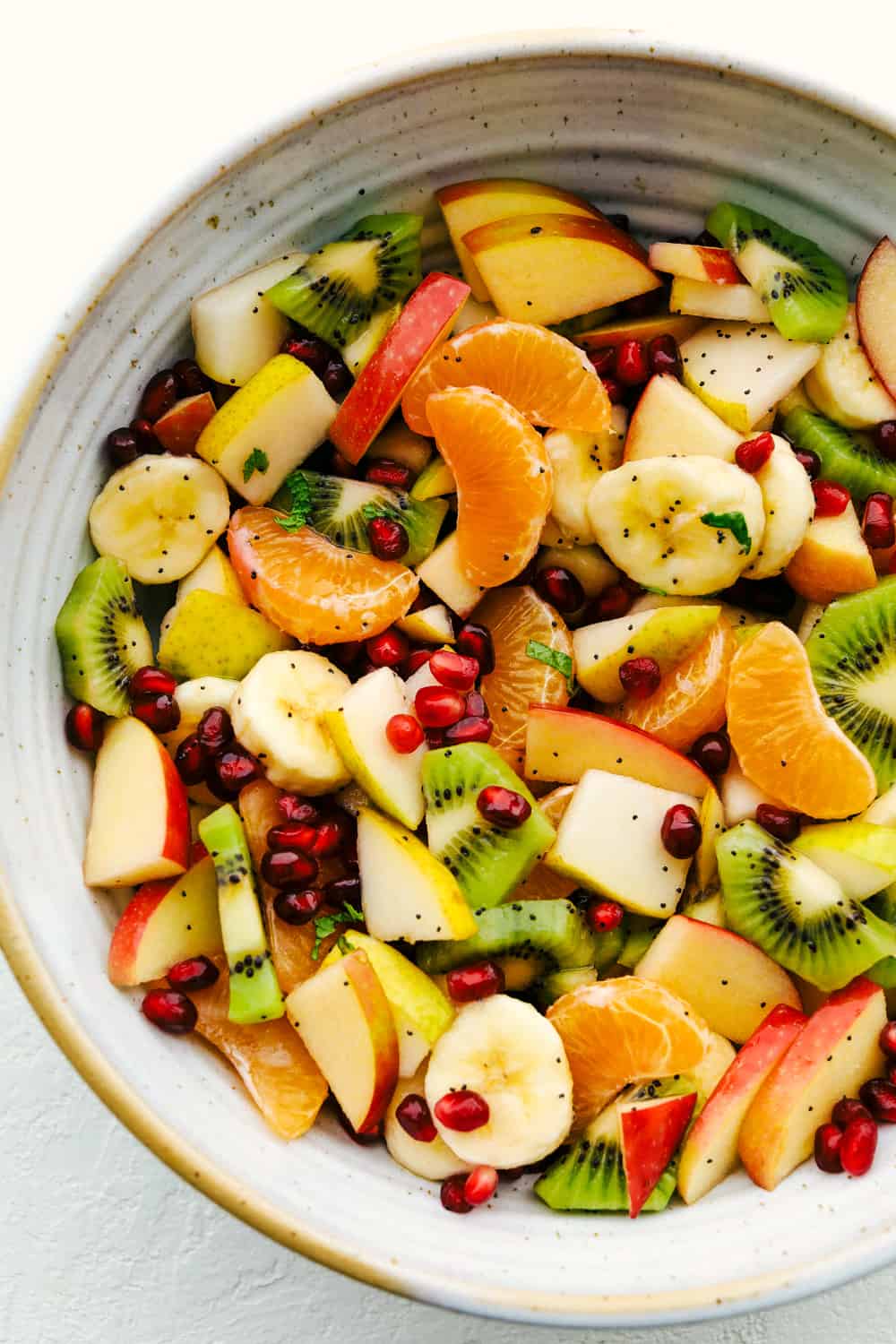
Christmas Fruit Salad
Fruit. I seriously can’t get enough fruit. I have always loved having fruit in the house and my little girl loves fruit just as much as I do! Even though I love summer fruits and am totally a strawberry gal, some of my favorite fruits are winter fruits. Clementines for example are always at our house as soon as they start putting them in the grocery stores. And I am totally obsessed with kiwis. Apples, pears, pomegranate seeds, everything comes together so perfectly in this mouthwatering salad.
I made this winter fruit salad quite a few times during the holidays and it is so bright, vibrant and delicious. We love having a fruit salad at the dinner table when we eat with family, and this one is always requested! It’s so simple and requires a little chopping and gets tossed in a honey lime poppy seed dressing. I love using honey lime in my fruit salads and it gives it a sweet and tangy coating on the fruit.
What to Put into Easy Winter Fruit Salad
Full of festive fruits and covered in a beautiful dressing.
- Apple: sliced and chopped in bite sized.
- Pear: Slice and chop
- Bananas: Peeled and sliced
- Kiwi: Peeled and cut into rounds
- Clementines: Peeled and separated
- Pomegranate Seeds: These are so yummy
- Honey: Adds the sweet to the dressing
- Lime Juice: Gives a nice zing to the salad.
- Poppy Seeds: Crunch and eye appeal
- Fresh Mint: Adds a nice hit of freshness to the dressing
How to Make Winter Salad
Comes together quickly.
- Combine: In a large bowl place the apple, pear, bananas, kiwi, clementines and pomegranate seeds. Stir gently.
- Whisk: In a small bowl whisk the honey, lime juice, poppy seeds and mint.
- Toss: Drizzle the dressing over the fruit and toss gently to completely coat.
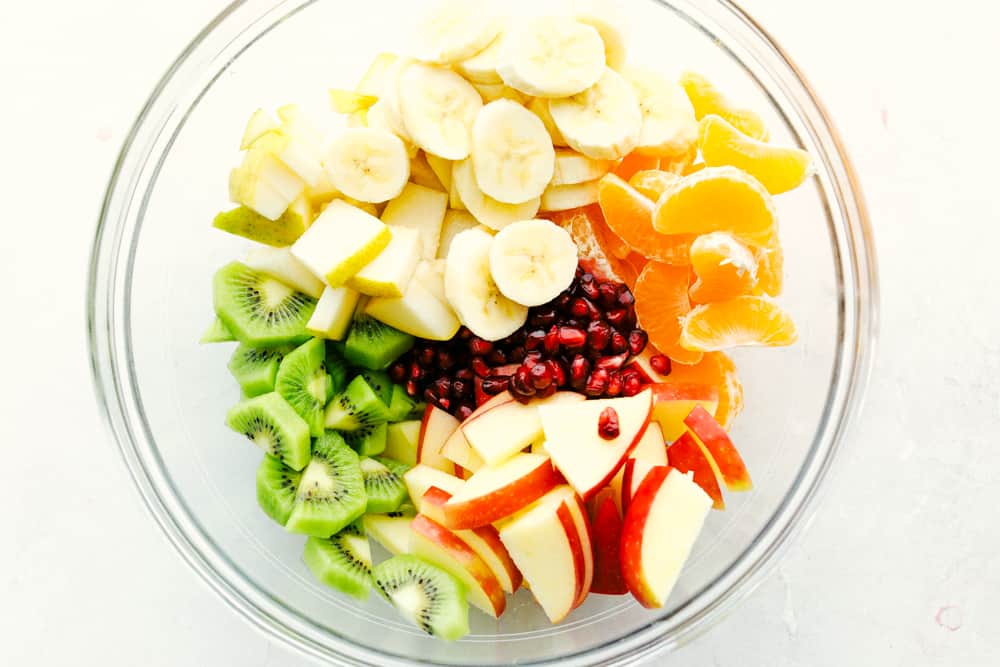
Pomegranate Hints
Pomegranates are a unique fruit, since you actually only eat the seeds. They are extremely healthy and taste so good. But getting your hands on them can be difficult. I love the color, flavor and crunch they add to this fruit salad. So here is one way to cut and deseed your pomegranates. Remember they can stain so take care about what you wear and use a plastic cutting board, as it can stain wood.
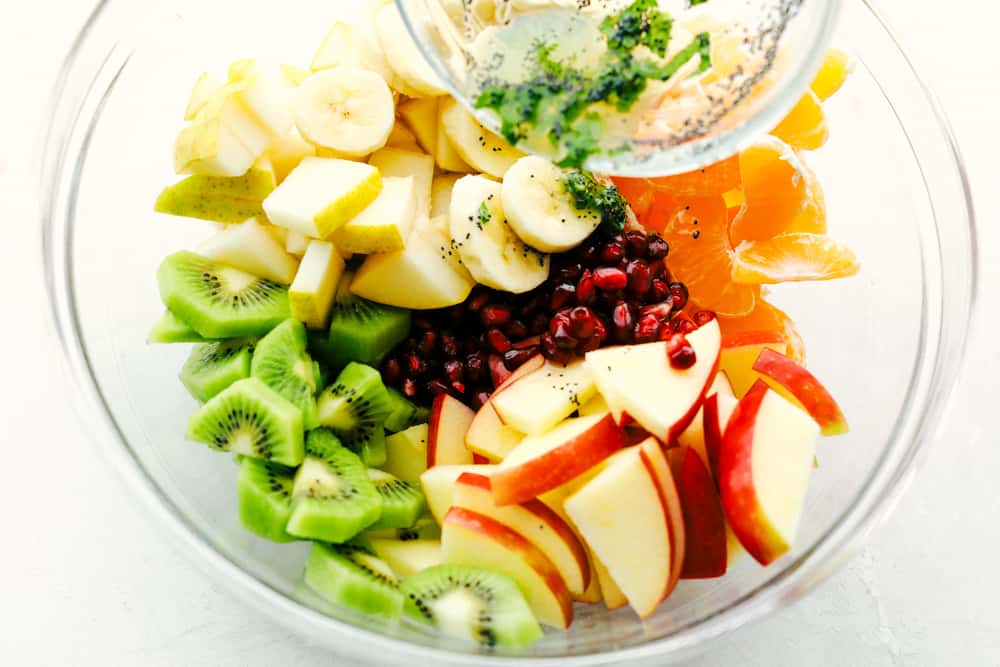
How to De-seed Pomegranates
Now if you don’t want to deal with taking the time do this or the mess, you can buy the arils already deseeded.
- Cut both ends off the fruit.
- Score the fruit in half all the way around the biggest part off of the fruit. Cut into the skin about half an inch all the way around. Using the knife, or your hand pry the two halves apart.
- Over a large bowl, hold one half of the fruit, seed side down in your hand. Using the back of a large spoon whack the pomegranate on the skin side all the way around.
- The seeds will fall through your hands into the bowl. Pry any arils left behind.
- Repeat with the other half.
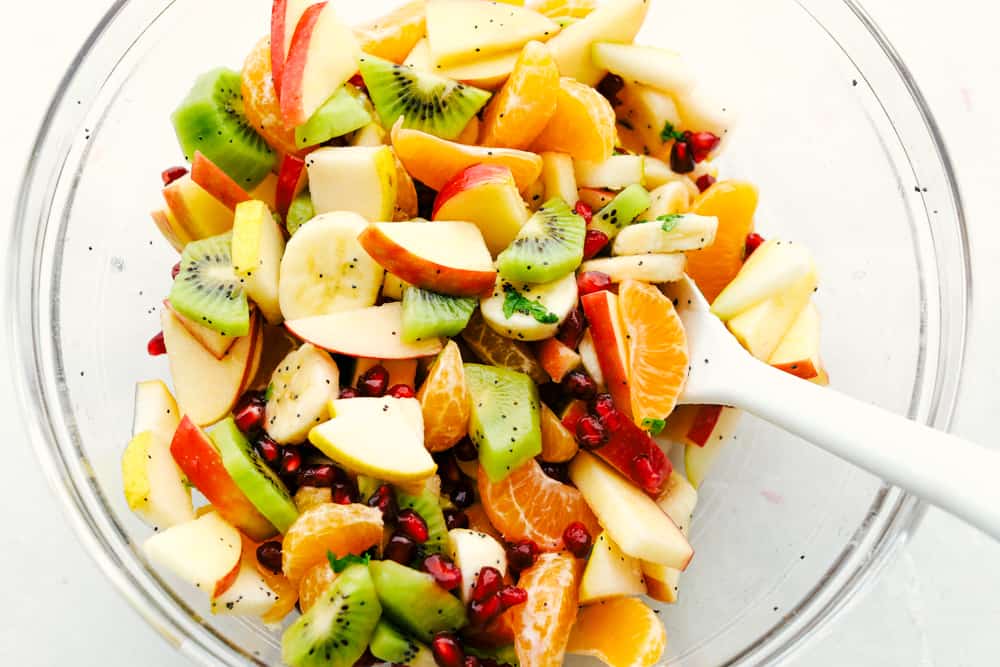
Variations and Tips
This is an easy fruit salad to make the way you love.
- Bananas: Bananas tend to go brown quickly and are a very tender fruit. Don’t add the bananas till right before serving to keep them fresh looking and to save them from getting crushed by the other fruit.
- Apples: Apples also go brown quickly so I don’t usually add the apples or pears till I’m ready to add the dressing. The lime juice will keep them from turning brown.
- Chop it: Keep everything bite sized for easy eating and serving.
- Cold: Keep it chilled and cold so it doesn’t go mushy.
- Kiwis: Make sure your kiwis are ripe, if they aren’t just omit them. It’s better than having them bitter or super tart.
- Fruit variety: Use the variety of fruit you and your family like best. For instance we like fuji or honeycrisp apples and bartlett pears, but there are lots to choose from. Also feel free to omit or add fruit to your liking
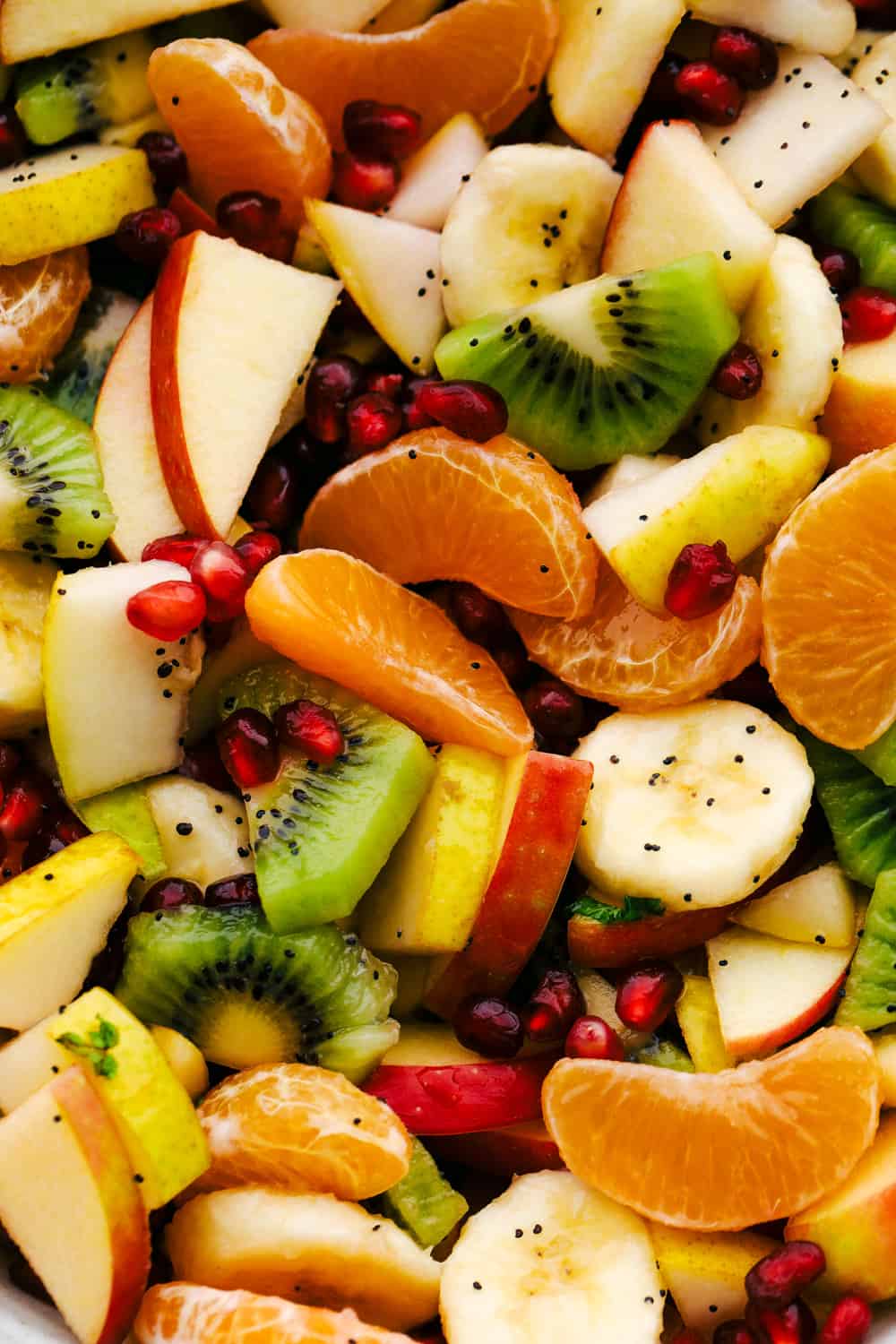
How Long Does Fresh Fruit Salad Last?
If you have any leftovers I recommend taking out the bananas before putting in the fridge, they’ll be really mushy as leftovers. The rest will be keep perfectly for 2 days. Freeze any leftovers to use in smoothies.
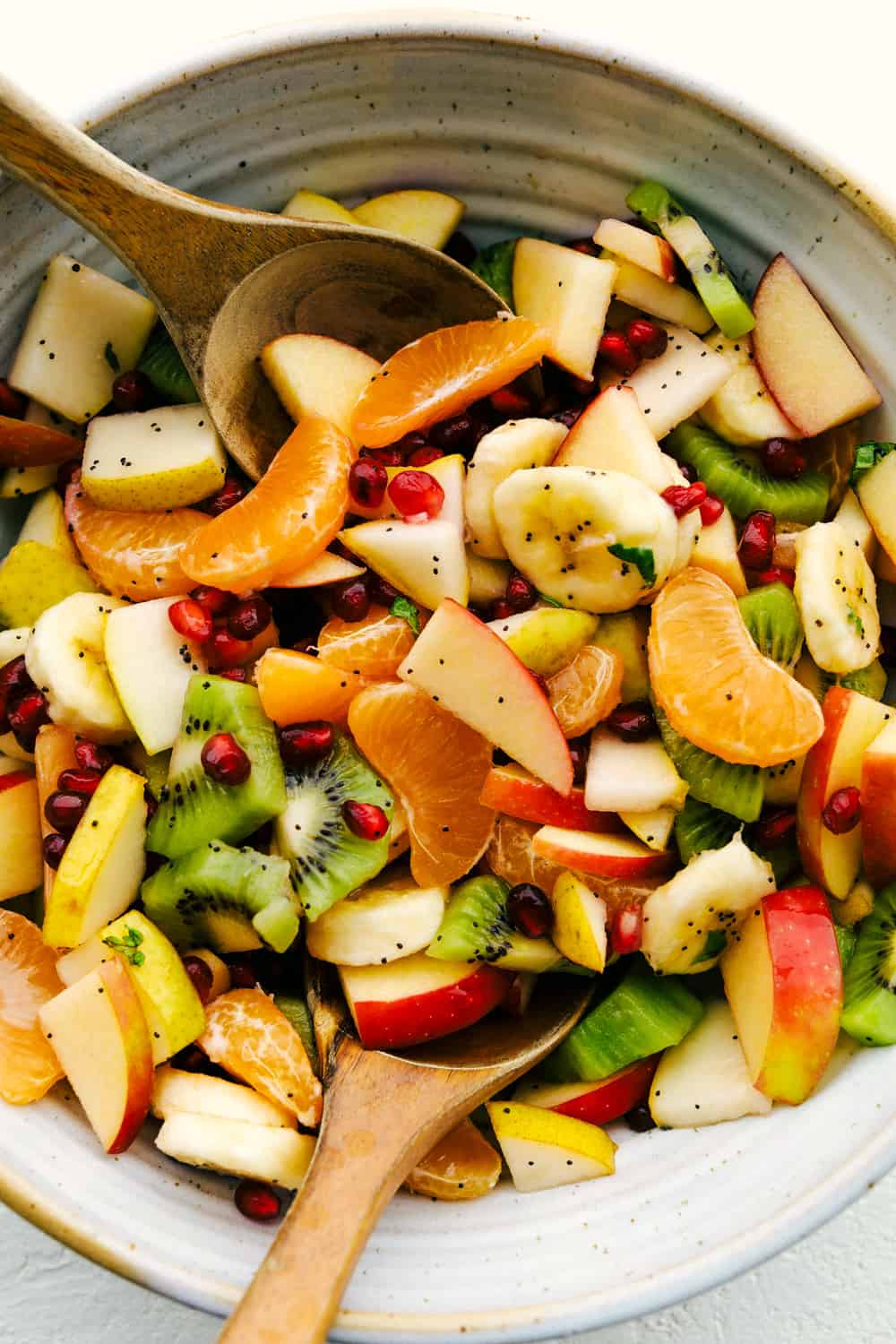
More Fruity Dishes to Try
These are incredible tasty ways to get more fruit in your diet! Try them today!
- Christmas Fruit Salad
- Marshmallow Cream Cheese Fruit Dip
- Mouthwater Fruit Salsa with Cinnamon Pita Chips
- Granola Fruit Pizza
- Fruit Galette
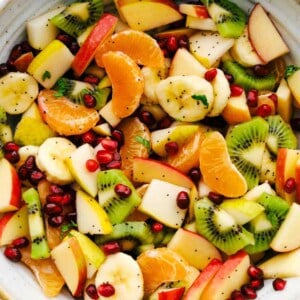
THE BEST WINTER FRUIT SALAD
4.50 from 4 votes
The Best Winter Fruit Salad is filled with clementines, kiwi, pears, apples, and pomegranate. It gets tossed in a delicious honey lime poppyseed dressing and you won't be able to get enough!
Ingredients
1x2x3x
- ▢1 large apple peeled and sliced
- ▢1 pear sliced
- ▢2 large bananas peeled and sliced
- ▢3 kiwi fruit peeled and sliced into rounds
- ▢3 clementines peeled and separated
- ▢1/2 cup pomegranate seeds
Making the Dressing:
- ▢1 Tablespoon Honey
- ▢3 Tablespoons Lime Juice
- ▢1 Tablespoon poppy seeds
- ▢1 Tablespoons fresh mint chopped
Instructions
- In a large bowl, combine apple, pear, bananas, kiwi, clementines, and pomegranate seeds. Lightly toss.
- In a small bowl whisk together honey, lime juice, poppy seeds, and mint. Drizzle over fruit and toss until coated. Serve.
The Best Winter Fruit Salad | The Recipe Critic
Last edited by Airbornesapper07; 12-25-2022 at 12:27 AM.
If you're gonna fight, fight like you're the third monkey on the ramp to Noah's Ark... and brother its starting to rain. Join our efforts to Secure America's Borders and End Illegal Immigration by Joining ALIPAC's E-Mail Alerts network (CLICK HERE)
-
12-25-2022, 12:57 AM #249If you're gonna fight, fight like you're the third monkey on the ramp to Noah's Ark... and brother its starting to rain. Join our efforts to Secure America's Borders and End Illegal Immigration by Joining ALIPAC's E-Mail Alerts network (CLICK HERE)
-
12-25-2022, 04:57 AM #250
Cause Darwin's Survival of the Fittest
SO THIS DUDE EATS A GREAT BIG LIVE WASP... WANNA GUESS HOW THAT TURNED OUT ?
 If you're gonna fight, fight like you're the third monkey on the ramp to Noah's Ark... and brother its starting to rain. Join our efforts to Secure America's Borders and End Illegal Immigration by Joining ALIPAC's E-Mail Alerts network (CLICK HERE)
If you're gonna fight, fight like you're the third monkey on the ramp to Noah's Ark... and brother its starting to rain. Join our efforts to Secure America's Borders and End Illegal Immigration by Joining ALIPAC's E-Mail Alerts network (CLICK HERE)
Similar Threads
-
Massachusetts Obamacare Site Tells Healthy People to Confirm Mental Diseases & Makes
By AirborneSapper7 in forum Other Topics News and IssuesReplies: 2Last Post: 11-12-2013, 04:41 AM -
Healthy Americans Health Insurance may Double, Even Triple When Obamacare Kicks In
By AirborneSapper7 in forum Other Topics News and IssuesReplies: 0Last Post: 07-01-2013, 11:48 PM -
CODEX NUTRITION COMMITTEE CHOOSES MALNUTRITION with sub-optimal nutrition
By AirborneSapper7 in forum Other Topics News and IssuesReplies: 0Last Post: 12-16-2012, 05:07 AM -
Try Parenting Instead Of Mental Health Screening
By PinestrawGuys in forum Other Topics News and IssuesReplies: 8Last Post: 02-08-2007, 04:37 PM -
Latino Diet Changes Deemed Health Crisi
By Charlesoakisland in forum illegal immigration News Stories & ReportsReplies: 12Last Post: 04-26-2005, 03:01 PM


 25Likes
25Likes LinkBack URL
LinkBack URL About LinkBacks
About LinkBacks




 Reply With Quote
Reply With Quote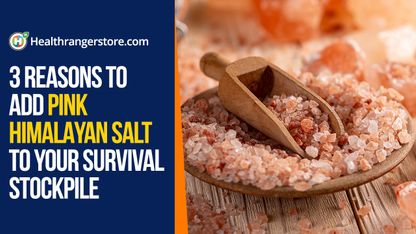

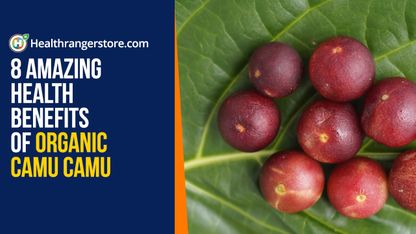
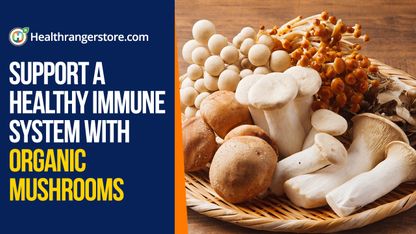
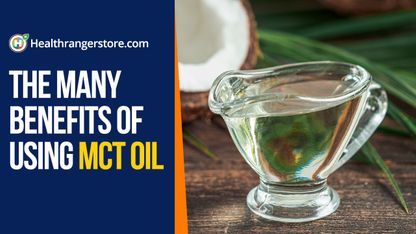
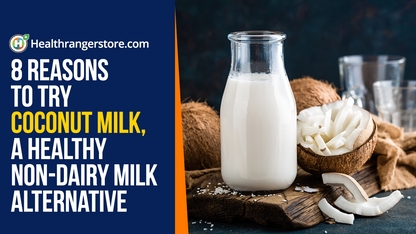
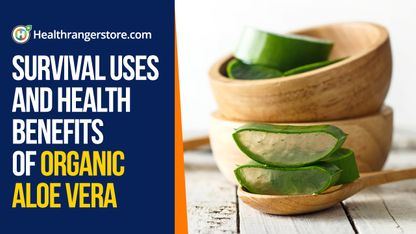




Treasonous Congress Funds Billions For Middle East Invasion...
05-02-2024, 01:28 AM in Videos about Illegal Immigration, refugee programs, globalism, & socialism